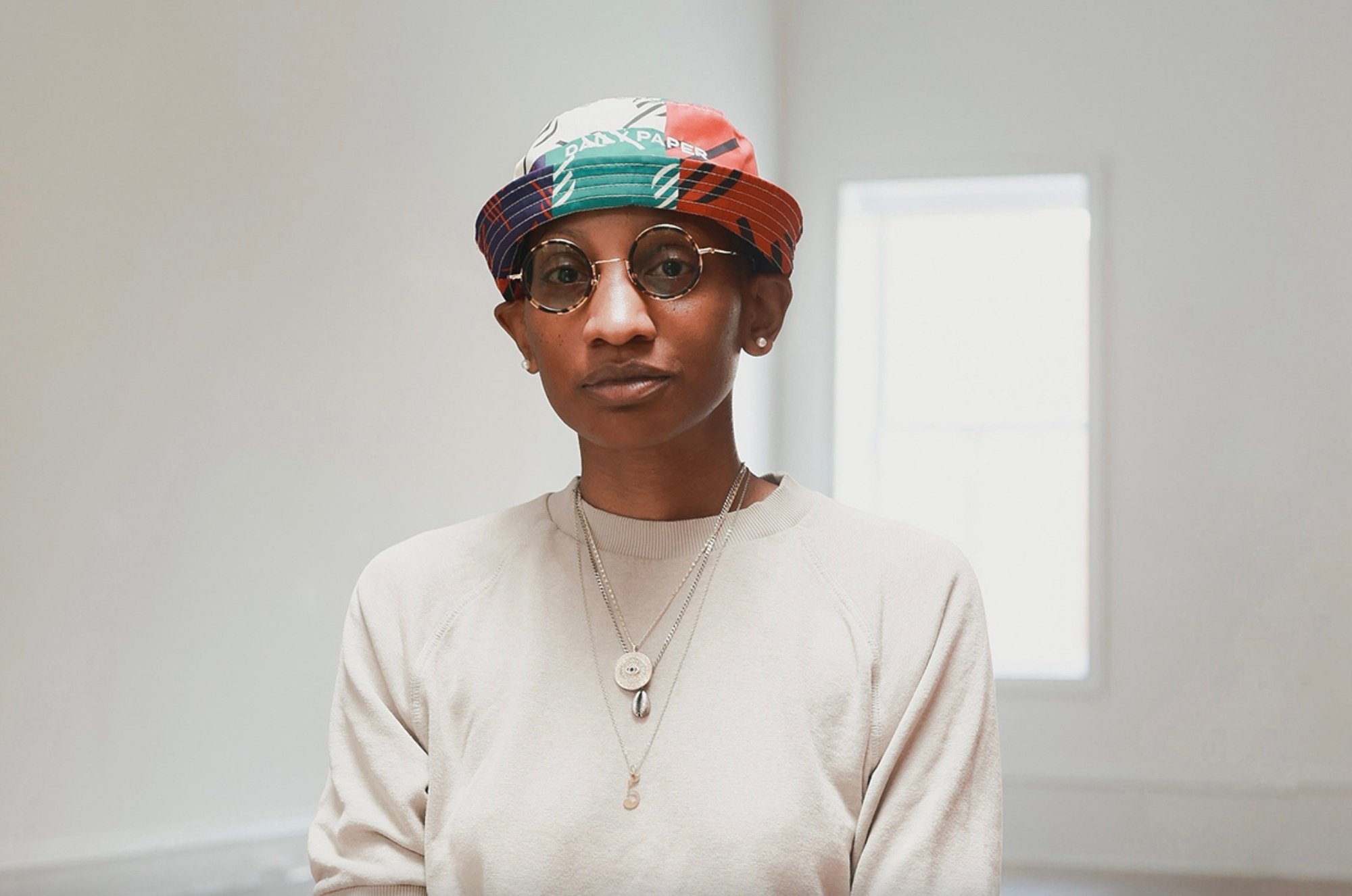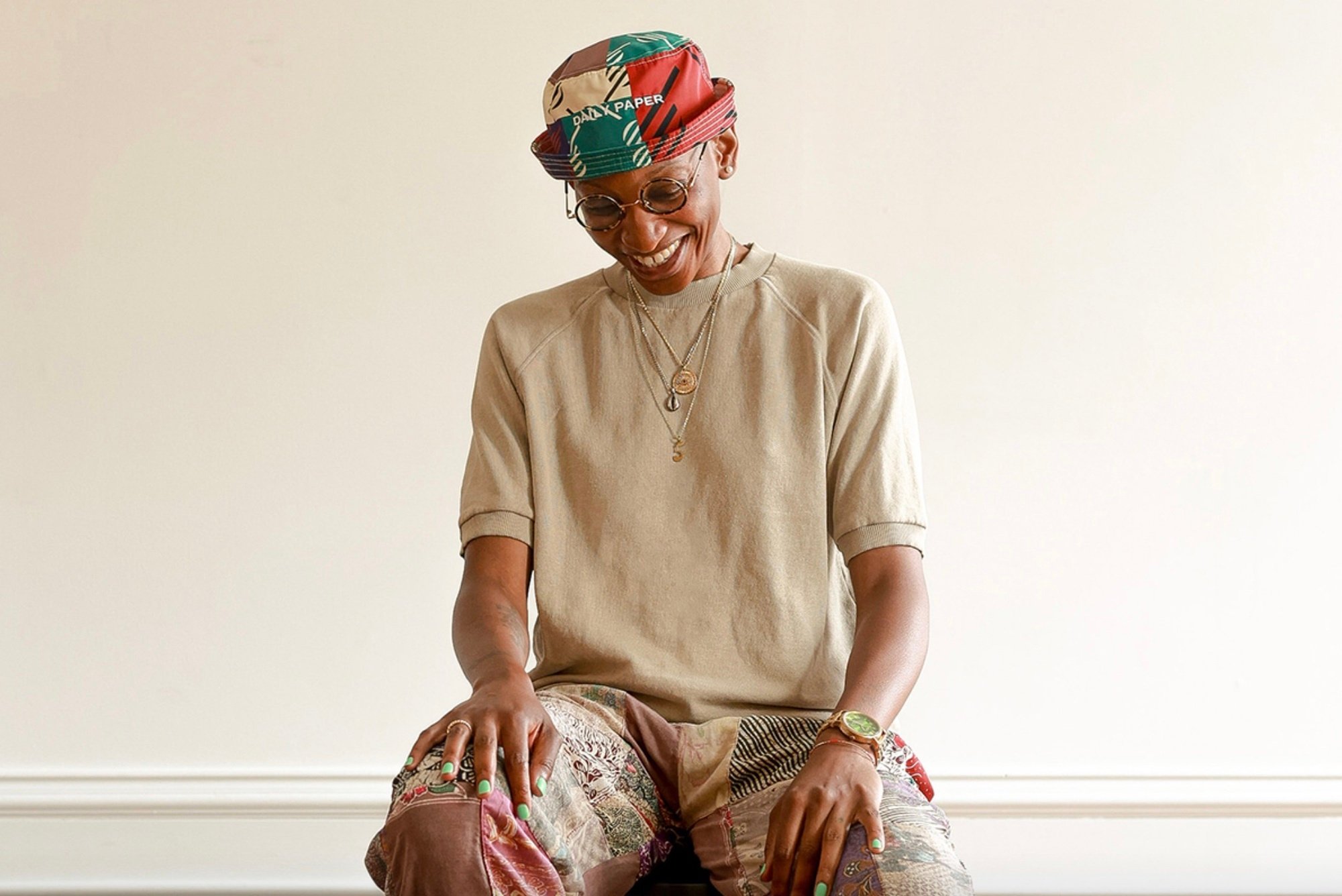How to own your voice at work
20. 9. 2022
6 min.
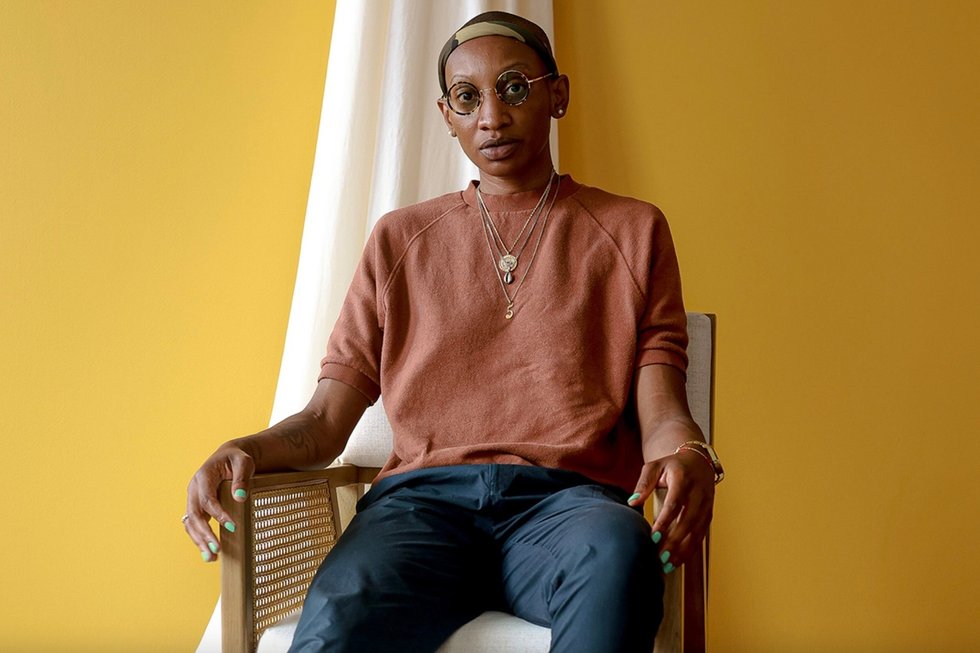
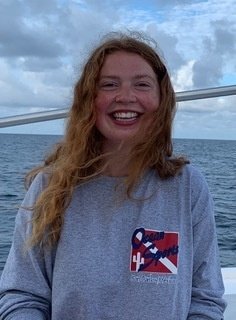
Freelance journalist based in New York City
Holley Kholi-Murchison is an artist and cultural geographer who uses her background in experimental education, storytelling, and developing ideas to help professionals flourish in their lives and careers. In this interview, we ask her about her career journey, why finding your voice is key, and our changing relationship with work.
How did your background lead you to, or influence, what you’re doing now with Oratory Glory and HOLI. Brands?
After a couple of years of managing artists and helping them to design careers that allowed them to thrive, I went on the road with a couple of my homies and some of the artists I was managing. We started something called the Hall Pass Tour. For three years, we traveled around the US, producing concerts at schools in urban and rural communities that were under-resourced. The theme was: How do we get young people excited about leveraging education to pursue their dreams?
I coached students who were going to be on stage so that, in addition to performing, they also talked about the vision they had for their lives and the dreams they were hoping to fulfill. A light bulb clicked and I was like, “Who is doing this kind of comms coaching work for adults?” So that led me to starting Oratory Glory — I took the work that I was doing at Hall Pass Tour, and I pivoted it to a more adult audience.
In 2012, I started teaching a workshop called Cool as a Cucumber: How to Master Public Speaking. The goal was to teach people the communication skills necessary to advocate for themselves in order to champion their ideas, to thrive, and [to show them] the way to forge deeper bonds through effective communication as a way to become more self-aware and self-empowered at work. It just naturally snowballed from there. HOLI. Brands became an umbrella company that my partner and I started together with this mission of HOLI. Brands being a think tank with our research around self-actualization [reaching one’s full potential], and then . . . coming up with different solutions and brands that can help support our work through education and media.
How did you decide on the name Oratory Glory and its tagline, ‘Own your voice. Leave your mark’? And why is finding and owning your voice so important for our relationship with work?
The name is really a nod to our ethos. It’s this firm belief in being unapologetic and deliberate about championing your gifts – that’s the oratory part. Applying those gifts to spark change, and then savoring and sharing the fruits – that’s the glory of those choices. So, the “Own your voice. Leave your mark” tagline is really about that. Once you’ve got a clear sense of who you are, what you’re here to do and who you’re here to become, then you leave your mark and your stake in the ground, leaving the world better for it.
I think that’s particularly important when it comes to our relationship with work because so much of our identities can be wrapped up in our work. I was in conversation with a colleague and he said to me, “Wow, your work gives your life so much meaning,” and I told him, “I like to think about it the other way around – that our lives give our work meaning.” [Author and poet] Toni Morrison said, ‘You are not the work you do,’ and I really like that notion. We are living, breathing humans – and who we are, and how we show up in the world, then informs our work. Our work is a manifestation of who we are. So I think that owning a voice and leaving your mark is an important way to know yourself.
Can you elaborate on the inspiration behind the ‘Tell Me About Yourself method.’ Why did you create it and how have you seen it make an impact with the people and businesses you work with?
The Tell Me About Yourself methodology is the result of several years of research, teaching, speaking and touring around the world as a facilitator, a coach, a strategist, a consultant – and now as an artist and cultural geographer, and it really stemmed from necessity.
I have worked in over 25 jobs across eight industries. And as an introvert, the “Tell me about yourself” question was the bane of my existence. It’s this loaded question that’s transactional in nature; sometimes, it can be delivered with this tone of “Tell me what you can do ‘for’ me.” I started to think about, how can we reimagine not only what our responses are but what that question is asking?
I’ve seen it go on to touch over 200,000 people across 30 countries, and I’ve seen teams use the methodology to help them more clearly articulate what their team does, who’s on their team and how that serves the larger mission at companies. I’ve also seen companies use the methodology to tell their stories and what their vision is for the impact they seek to make. And then on an individual level, I’ve seen teammates completely transform how people talk about who they are and why they’re here. I think the most important impact is how it transforms how people see themselves, and the agency it gives them to compellingly share a story they may have fumbled or stumbled to articulate before.
In your work, you emphasize the importance of communication and honing creative and career confidence. How does staying present affect that and the journey to self-actualization?
“Present” to me is where the magic is happening – it’s where the moments are. For a long time — and it’s still something I’m working through — I was always focused on what happened in the past and where we’re going in the future. And every time I did that, I missed what was happening here and now, right in front of me, which means we can’t get to prep those future moments. We can’t reconcile things that have happened in the past if we’re not here and now.
I think about the present as the place where we can commit to the actions that mend the past and shape the future. And that’s what self-actualization is all about: the realization of one’s full potential in the world.
What is something, like a ritual or habit, you do to ground yourself and stay present?
I work with a brilliant breathwork coach, and a good friend of mine, named ché f.m. For a long time, as a person who navigates debilitating anxiety, I found that I was always holding my breath. Breathing and different breathwork practices helped ground me in the here and now. So, every morning when I wake up, I have a 20-minute ritual where I do ujjayi breath [a calming breathing technique used in a variety of yoga practices].
I also recite gratitude in the morning. Five things I’m grateful for that immediately center me. It’s like, wait, I have to be present here and now to be able to say, “Oh, I’m grateful for the sun peeking through my window at this moment.”
What is something someone told you throughout your career journey that stuck with you? Or something you wish someone had told you?
[There is] something someone told me when I was living in Oakland. I don’t even remember what I was stressing over, but I was pretty frazzled in the back of the car. I hadn’t exchanged many words with the gentleman who was driving aside from a word when I got in the car, and a thank you as I was leaving. But as I was getting out, he turned to me and said, “Make fun, and you’ll always have fun.” And I’ve been holding that near and dear to my heart – just as a reminder that, you know, work can be play, and fun, and full of life. It doesn’t have to be serious all the time.
On the other hand, I wish someone would have told me that we are all out here making it up as we go along. I think when you’re an artist or a creator, or just a professional in any career, you can sometimes assume that there’s a “right way to do it.” And that’s just not true. We have the agency and the capacity to make up our journeys as we go, so all of our journeys will look completely different.
Do you have any upcoming projects that you are looking forward to?
Yes, absolutely. One project I’m finishing up is my master’s dissertation on the future of work. The working title is Portals: Reimagining the Future of Work and Workplaces for Self and Communal Actualization. It’s essentially an exploration of how we can reimagine work for independent creators in the global majority [those who identify as Black, Indigenous or people of color] as well as hybrid creators – individuals who work within companies while also building businesses outside of the traditional work structure – and what it looks like to create environments for people to self-actualize through their work.
Photo: Ashley Johnson for Welcome to the Jungle
Follow Welcome to the Jungle on Facebook, LinkedIn, and Instagram, and subscribe to our newsletter to get our latest articles every day!

Další inspirace: Inspirativní příběhy
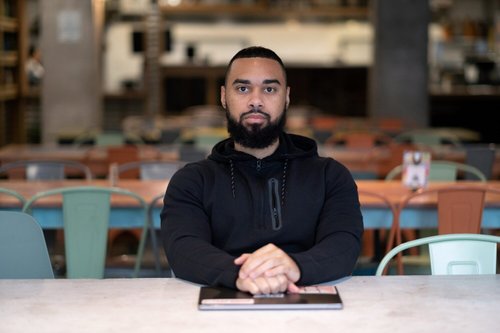
Be real, get ahead: The power of authenticity in your career
Pabel Martinez shares insights on how to allow yourself to be yourself, find your voice, and deconstruct stereotypes at work.
25. 4. 2024
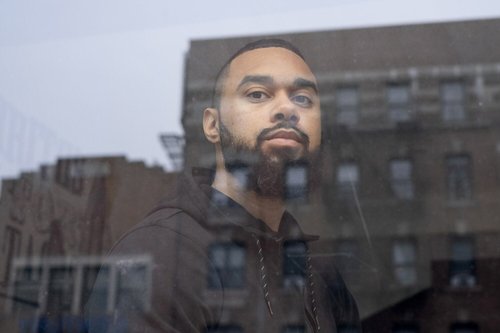
The professionalism paradox: Navigating bias and authenticity with Pabel Martinez
Pabel Martinez challenges the conventional norms of professionalism by unraveling the complexities of workplace discrimination.
11. 3. 2024
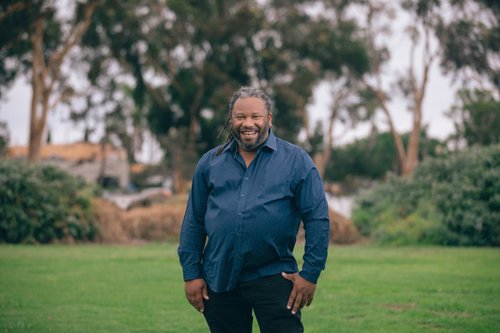
How play can make you happy, creative and productive at work
Work-life balance usually means separating work and play, but it might be a better marriage than you think...
07. 11. 2023
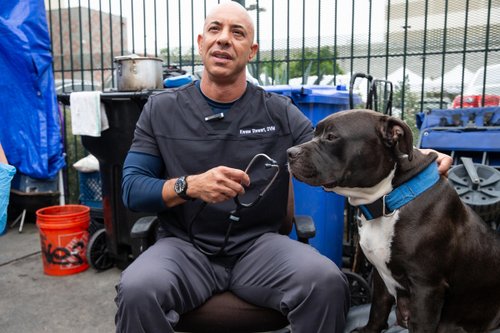
Project Street Vet: Caring for the unseen paws of Skid Row
Providing vet-to-pet care in some of California's largest homeless communities, Dr. Kwane Stewart shares the ups and downs of his remarkable work.
29. 8. 2023
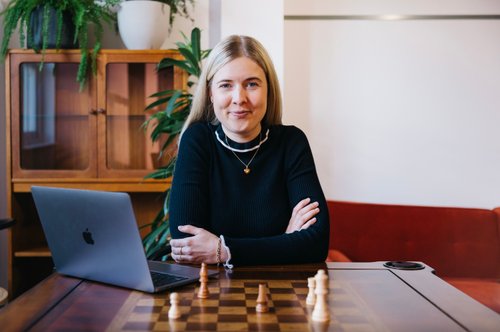
Girls learn how to have fun – and funds – by investing
A Danish trio is fighting gender inequality... on the stock market. We had a chat with one of the co-authors of the book Girls Just wanna Have Funds
30. 1. 2023
Zpravodaj, který stojí za to
Chcete držet krok s nejnovějšími články? Dvakrát týdně můžete do své poštovní schránky dostávat zajímavé příběhy, nabídky na práce a další tipy.

Hledáte svou další pracovní příležitost?
Více než 200 000 kandidátů našlo práci s Welcome to the Jungle
Prozkoumat pracovní místa
